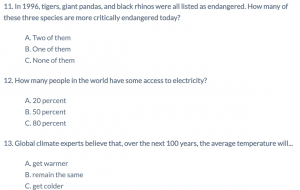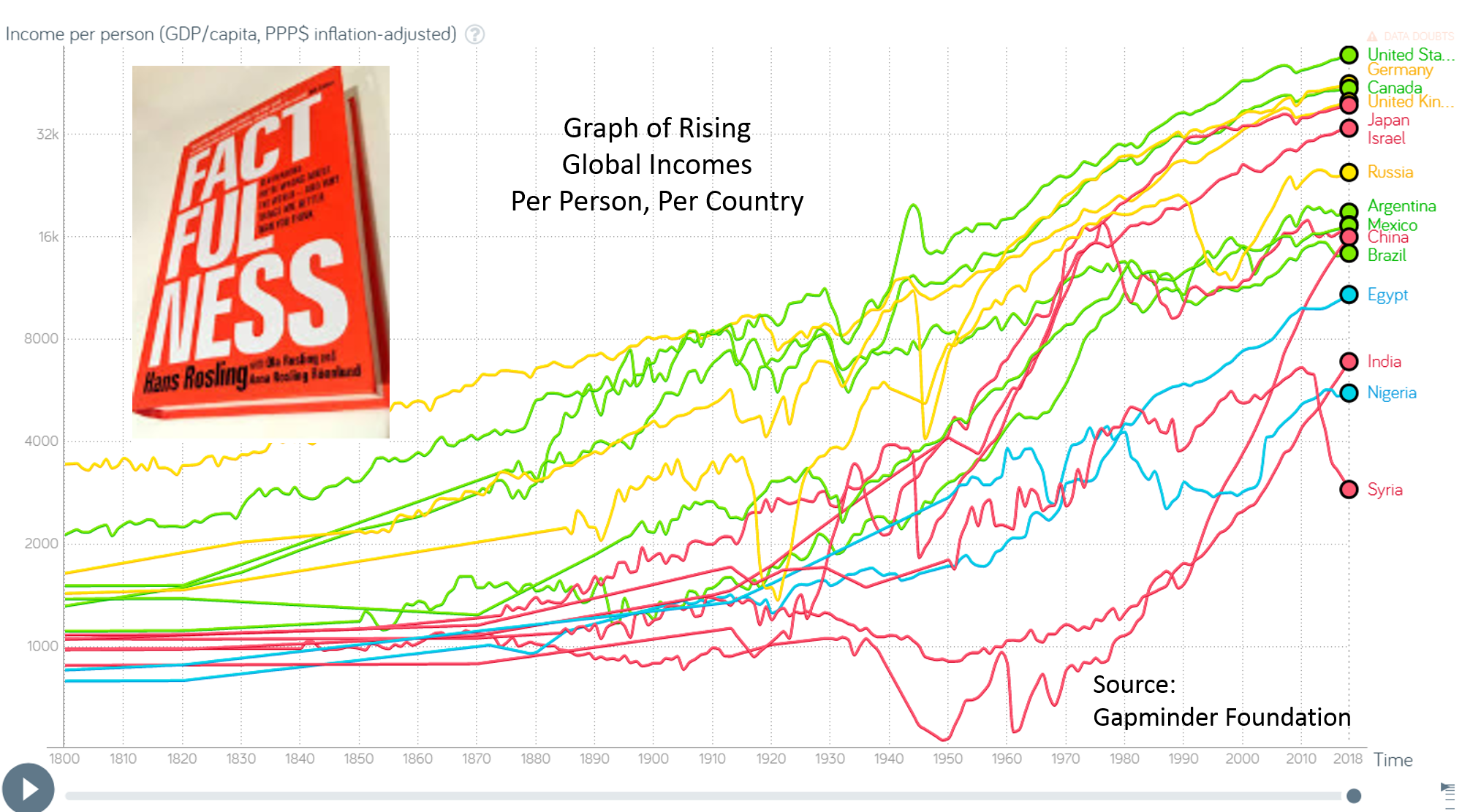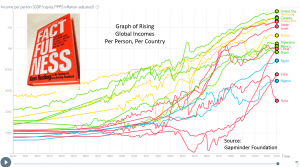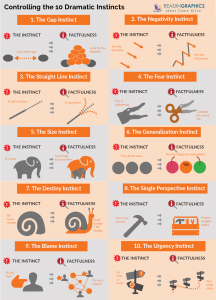Congratulations to “Growing Success”! It is celebrating it’s 10th anniversary next year, but how many will show up to the party? There will be COPs (Conversations, Observations and Products) and lots of Assessments (otherwise known as ‘Celebrations of Learning’) for, of, and as Learning. But we are going to KICA this party into the next gear!
KICA is the 4 categories of assessment, but it is NOT a hierarchy, nor an ‘order of operations’. You don’t (and in many cases shouldn’t) start with Knowledge. Rather, build up the foundations of curiosity, inquiry skills and thinking strategies.
operations’. You don’t (and in many cases shouldn’t) start with Knowledge. Rather, build up the foundations of curiosity, inquiry skills and thinking strategies.
Hans Rosling’s last contribution to making the world a better place before he passed away is “Factfulness“. A collaboration with his son and daughter-in-law that builds on his work with Gapminder. This book is incredibly important for any educator to read. It weaves together a strong narrative for why data is an integral part of a liberal arts education..
“You can’t solve the problem without data, but data can’t solve the problem.”
You should read this book if you want to:
- Understand why ‘develop and developing’ nations is an outdated, misleading and dangerous use of categorization for understanding the world.
- Introduce humanities work in math and science, and visa-versa
- Be inspired to create meaningful and purposful work for yourself and your students
Hans Rosling first came into my education-life through his groundbreaking use of data in his incredible talk that animates data and I strongly encourage you watch it, if only to know that what you think about the world is probably outdated and wrong.
http://https://www.youtube.com/watch?v=jbkSRLYSojo
In this book, Hans Rosling uses a 13 question test as the foundation – it is a test that he has given to thousands of people: teachers, world leaders, researchers and more. On this test, everyone gets it wrong. Everyone fails. By failing he means that those taking the test do worse than if they were to just guess at the answers.
Here are three sample questions:
 He writes:
He writes:
“How did you do? Did you get a lot wrong? Did you feel like you were doing a lot of guessing? … The tests are not complicated and there are no trick questions. I am careful only to use facts that are well documented and not disputed. Yet most people do extremely badly.”
Not only devastatingly wrong, but systematically wrong. By which I mean that these test results are not random. They are worse than random: they are worse than the results I would get if the people answering my questions had no knowledge at all. (https://www.quickanddirtytips.com/education/science/factfulness-how-well-do-you-know-the-world)
His point is that with data, we can see the world as it is, not as what it used to be. In fact the world is becoming a better place: people across the wide spectrum of existence are living longer, living better and enjoying a higher quality of life. But you wouldn’t think so. And this is what he delves into. Why? Largely, it is a combination of media bias, and our own ‘negativity bias’.
As an educator, this book will really disrupt your thinking, and provide you with some great resources, strategies and approaches to reshape your understanding of how to inspire and prepare our students and make them “FUTURE READY”. That is, to prepare them to take on the world and how it has fundamentally changed over the past 20 years.
Here is a great download of the critical thinking hacks to help us live a life that is more current, critical and gives us a disposition to responsible and ethical action.
So, in the end, why would educators benefit from this, because teaching Knowledge is on thing, but not the only thing. Spending time with the above 10 Factfulness questions will go a long way to preparing students to engage meaningfully with the Knowledge that they are confronted with.



First off, golf clap for the “But we are going to KICA this party into the next gear!” pun 🙂
Thank you for this @gnichols, I may have found a new addition to my xmas list.
As a math teacher, I’m constantly struggling with the balance of providing my students the knowledge they need, as well as getting them to “engage meaningfully”, as you put it. I don’t know that I’ll ever fully get there, but I guess simply being aware of it is a good start.
I also enjoyed the “Controlling 10 Dramatic Instincts” infographic, particularly the “this will continue” versus “it may bend”. My math brain loves to spot trends and then extrapolate them into the future, but I’m starting to learn that this can lead to false assumptions and a closed-mindset.